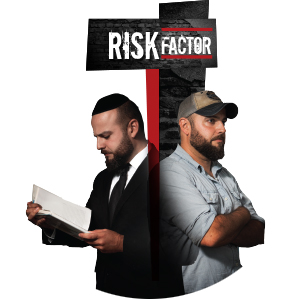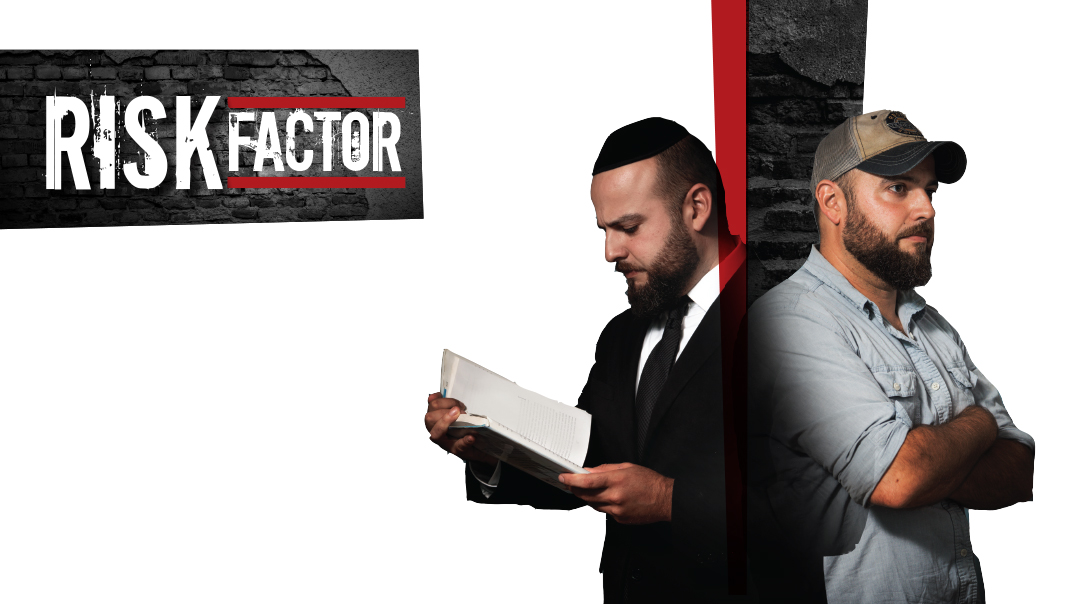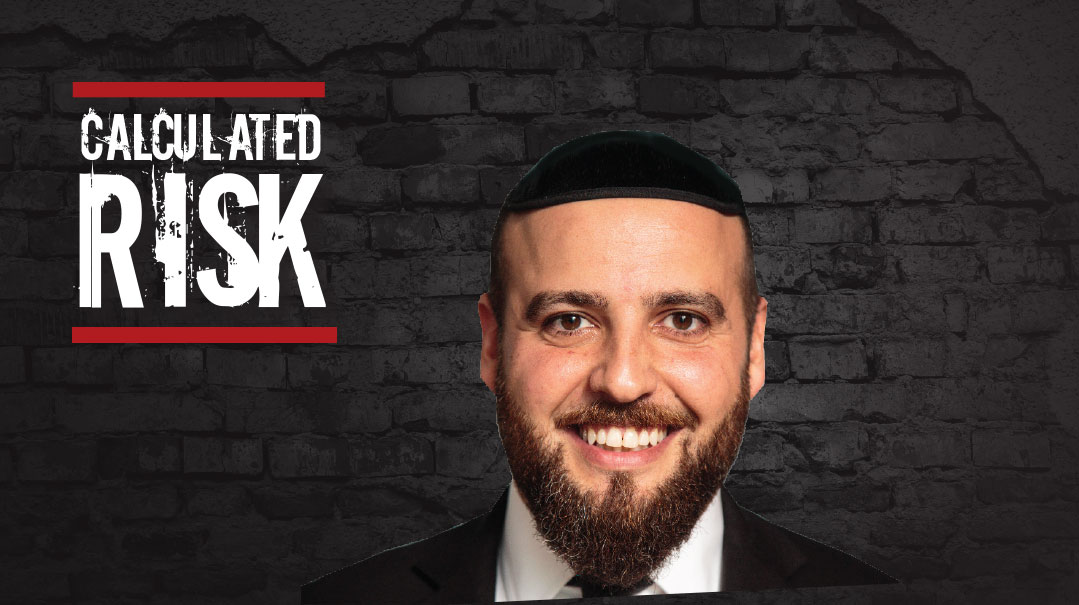The File

The File contained hundreds of documents, everything Mrs. Rubin thought was “wrong” with her son
M

rs. Rubin walked into my office ten minutes early. My kids had been there earlier that day, and there were still childish drawings strewn around the room.
She stopped short. “This is where you see people?”
“Yeh, sorry, my kids…”
She looked disapproving. “Not very conducive to therapy.”
I smiled. “Good thing I’m not a therapist.”
Now she looked even more disturbed. She sat down, clutching a file thick with documents against her chest. “Look,” she began, “Shimmy’s 15 and he has ADHD and severe learning disabilities. He can act out very aggressively. The school wants him out, they say his behavior is too disruptive. His rebbi said he can stay if he can commit to sit quietly.”
I made a mental note to call the rebbi.
“He just needs to stick it out one more year. When he’s 16 he can legally leave school and apprentice by my brother, an electrician. I just need you to figure out how to get him through this year.”
“I’m not qualified to evaluate Shimmy’s learning disabilities or suggest a course of action,” I said.
“He was evaluated already! We know what’s wrong with him—”
Wrong with him?
“Mrs. Rubin, I hate to be the bearer of bad news, but being an electrician is hard work and it takes a lot of time and patience. What makes you think he’ll be able to do that?”
“Oh — he’s very good with things like that. He’s a completely different kid.”
“Is there a therapist working with him?”
“No, he refuses. He won’t talk to anyone except his older brother, which I really don’t understand — they’re so different.”
“Different how?”
“Well, Aharon’s a good kid.”
Ouch. “And Shimmy?”
“Shimmy’s not a good kid.” She stated it simply, like it was obvious. “It’s not his fault, but that’s just how it is.”
“You’re wrong,” I said.
She looked shocked. “Excuse me?”
“Look, I can’t imagine the challenges you’ve been through raising a boy like Shimmy. I’m sure he drains every ounce of emotional energy. But if you want my help, I need you to be open-minded. Let go of all the labels. We’ll start fresh.”
“They’re not labels, they’re facts.”
As she said it, she handed me The File.
The File contained hundreds of documents, a meticulous accounting of everything Mrs. Rubin thought was “wrong” with her son. Every evaluation, every diagnosis, every report, every treatment model — and there had been many over the last eight years. I was impressed with her organizational skills and even felt a little bad that my office was so messy. Although I didn’t like her descriptions of Shimmy, this file attested to a mother committed to pursuing help for her child.
But when Shimmy walked into my office two days later, something didn’t feel right. Shimmy was well-dressed, confident, personable, and had a fantastic sense of humor — all while meeting a new person who he didn’t really want to be meeting. In fact, if I hadn’t seen The File, there was no clue that anything was “wrong.”
We schmoozed for a few minutes and then I asked, “So, Shimmy, do you want to go back to yeshivah?”
“I only need to be there until I’m 16, then I can go work for my uncle,” he answered, like he was reading from a script.
“That wasn’t my question,” I said. “Do you want to go back?”
He thought a moment. “Yes and no,” he said. “I have my friends and my basketball team and stuff. But I can’t sit in class all day. It’s too hard.”
As he finished talking, Shimmy began shifting uncomfortably in his chair. He stood up and moved to the couch. He unbuttoned his top button and began pulling on his collar. “Sorry,” he apologized. “It’s just my ADHD kicking in. I really can’t sit for too long.”
“Did you take your meds this morning?”
“Yeah,” he said. “I took it right before I came here.”
I looked up at the clock. He had been sitting with me for about 20 minutes.
I looked back at Shimmy. It all fit.
We joked around for another 15 minutes about basketball and his friends, but it was excruciating to watch him struggle to regulate himself. He clasped and unclasped his hands, stood up and sat back down. As soon as he left I called his mom.
“When was the last time Shimmy was at the psychiatrist?” I asked.
“He’s taking his meds!” she said.
“I know. I think that’s the problem. It looks like it’s not the right dose or not the right prescription. I think that’s our starting point.”
“What?”
Why did she sound so disappointed?
“Twenty minutes into our meeting his medication took effect and he looked like he was crawling out of his skin,” I explained. “When was the last time he was off the medication?”
“He’s never been off it since he was diagnosed when he was seven.”
Now it was my turn to be stunned. “He hasn’t been reevaluated since he was seven?”
“No,” she said defensively. “Why would he be?”
“Because he’s 15. A lot has changed since he was seven.”
“Nothing has changed,” she spat. “He still has issues.”
“His issues might be because he’s on meds when he doesn’t have to be. Please get him reevaluated right away.”
A week later Mrs. Rubin reported that the psychiatrist wanted to try weaning him off the medication.
“That’s great,” I said. “Shimmy must be thrilled.”
Mrs. Rubin wasn’t. “I haven’t told him yet. I’m taking him for a second opinion.”
I was at a loss. “I’m all for second opinions but I’m telling you they’re going to say the same thing. It’s horrible that Shimmy had to endure it for so many years, but now he doesn’t anymore. He can go back to school and do well and even graduate…”
As I said the words, The File caught my eye.
In all the years I’ve been in this field I’d met many committed parents, but I’d never known anyone to keep a file this detailed. It was almost as if…
“Can I ask you something? And I need you to really think about what I’m asking,” I said.
“Rabbi,” she said, ignoring me, “call it mother’s intuition, but I know this is not as simple as a wrong dose.”
I sat down heavily. I really did not want to be right.
“Mrs. Rubin,” I said, “if the second opinion is the same as the first, are you going to be okay with Shimmy going back to school and doing well?”
“That’s an absurd question,” she said, too loudly.
I looked down at the file.
“Mrs. Rubin, have you ever heard the term ‘codependent’?”
“What does that have to do…”
“When someone is codependent, their sense of identity is dependent on the role they’re filling for another person. All parents care for their children. But if a parent is trying to fill all their emotional needs by playing the role of caring for or saving their child, that’s not healthy parenting — that’s a sign of codependency.” I paused. “Does that description feel familiar?”
I saw Shimmy a few months later at a school basketball game. He came over and shook my hand. “Hey, rabbi, thanks again.”
“No problem,” I said. “Is your mom here?”
“Yeah.” He pointed to the stands.
Mrs. Rubin looked glad to see me. “I never got a chance to thank you…” she began.
“That’s okay,” I said. “I wanted to ask you something, though. I was cleaning up my office… You know, my kids…”
She laughed.
“Anyway, I still have your file. Do you want to come pick it up?”
“Oh.” She looked thoughtful, then she smiled. “It’s okay, you can throw it out. I don’t need it anymore.”
Identifying details have been changed to protect the privacy of patients, their families, and all other parties.
Rabbi Yossi Bensoussan serves as mashgiach ruchani at Yeshiva High School of Cleveland. He is a Certified Alcohol and Substance Abuse Counselor (CASAC) who currently maintains a private practice, and does motivational speaking and community education on addiction all over the US and Israel.
(Originally featured in Mishpacha, Issue 794)
Oops! We could not locate your form.









